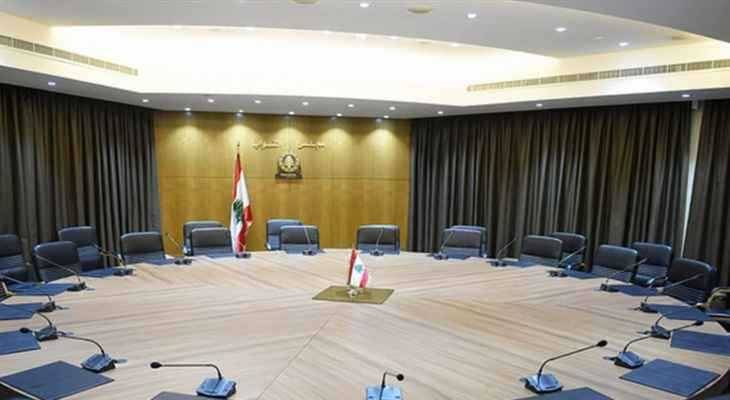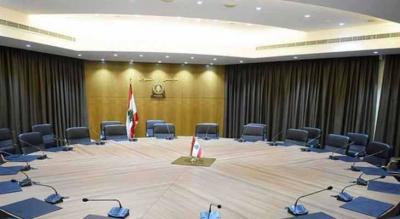Political references are questioning whether the Lebanese Parliament Speaker Nabih Berri's call for a week-long dialogue, followed by consecutive sessions to elect a president, is based on his assessment that regional and international conditions have matured for such elections or if he aims to absolve himself of responsibility and place the burden on those who do not respond to his call for dialogue. According to political sources cited by "Asharq Al-Awsat," the international community's insistence, represented by the "five-member committee" (Saudi Arabia, Qatar, Egypt, France, and the U.S.), to resolve the presidential vacancy does not necessarily signify a clear path for the election.
The sources emphasize that Iranian Foreign Minister Hossein Amir-Abdollahian's statement during his recent visit to Beirut, asserting that Iran does not interfere in Lebanon's internal affairs, does not meet the necessary requirement as long as Tehran refrains from giving the green light to its ally, "Hezbollah," to stop obstructing the presidential election. Furthermore, they indicate that maturing regional and international conditions for electing a president would be insufficient without a similar maturation in Lebanon's internal dynamics, necessitating local parties to soften their stances and lower their political ceilings.
The sources confirm that "Hezbollah" has not shown flexibility thus far to meet its opponents halfway in search of a settlement towards agreeing on a consensual president outside of political alignments. They assert that "Hezbollah" is not prepared to engage in a settlement as, unlike most political forces, it views the election of the president from a regional perspective linked to rapid developments in the area, benefiting Tehran to retain the presidential card to improve its negotiating position with Washington. This context helps to explain French President Emmanuel Macron's suggestion that Iran's intervention hinders the election of the president.
The article suggests that Macron's hint towards Iran is rooted in the conviction of the French presidential team tasked with Lebanon's file that Tehran aims to leverage its position for concessions from Washington. Thus, local conditions need to be improved to stop obstructing the presidential election, which would include "Hezbollah" being willing to make the necessary concessions, followed by "Free Patriotic Movement" leader Jibran Bassil lowering his demands—not to achieve a bilateral deal with Hezbollah, but to engage in efforts for a consensual president—which requires the opposition forces to adopt a political realism allowing them to open up to the other side of the resistance axis while expecting mutual treatment.
The same sources believe that the involvement of the "Lebanese Forces" and "Kataeb" in an organized political campaign is not solely aimed at obstructing Berri's invitation for dialogue but also at isolating Bassil and embarrassing him in the Christian street, prompting him to reconsider his response to the dialogue and reduce communication with "Hezbollah," characterized by a bargaining nature over the conditions for the presidential terms in exchange for agreeing to the demands laid out in his political paper, mainly decentralization and expanded financial jurisdiction.
Although Bassil’s associated MPs have begun promoting his readiness for a presidential agreement with "Hezbollah" on the condition that it supports his demands starting with administrative and financial decentralization, "Al-Manar" television, the party's mouthpiece, indicated in its news bulletin that the agenda of their joint committee meeting was solely about the expanded administrative decentralization, without mentioning the financial aspect.
Thus, the sources question Bassil's willingness to continue dialogue with "Hezbollah" amid an unprecedented political war led by the "Maronite duo" (Lebanese Forces and Kataeb), going beyond Berri's invitation for dialogue to targeting "Hezbollah" as the only obstacle to restoring the project of state-building instead of "Hezbollah's" state. They ponder whether Bassil will manage to navigate this reaction in the Christian street or if he will have to rethink his approach towards responding to the presidential dialogue under the pretext that he lacks the necessary consensus.
However, the renewed political conflict between the Maronite duo (Lebanese Forces and Kataeb) and their third member Bassil—who previously agreed to align with the opposition by supporting former Minister Jihad Azour's nomination—will not overshadow the growing differentiation between the opposition forces and the "Democratic Gathering" headed by Taymour Jumblatt.
While they coincide with Azour's nomination and agree to exclude the nomination of the former MP for "Maronite Movement," Sleiman Frangieh, their differences persist over Berri's dialogue call and the stance on the questions posed by the French president’s special envoy, former Foreign Minister Jean-Yves Le Drian, to the deputies. Although the opposition refrained from answering the questions, the "Democratic Gathering" did not mention them in its message to Le Drian but instead called for a dialogue leading to the election of a president.
Although 31 deputies from the opposition agreed to reject the French envoy's message, citing that they did not wish to put him in an awkward position, considering his steadfast position on dialogue at odds with the resistance axis and primarily "Hezbollah." Therefore, the divergence between the opposition forces and the "Democratic Gathering" extends beyond their stance on dialogue to include issues of urgent legislation, holding cabinet sessions, and the tone of political discourse, reflecting also in their relationship with several Sunni MPs not aligned with the resistance axis. Their last meeting left the disagreements regarding their approach to the presidential file unresolved, and no potential for common ground appears likely in the near future.




